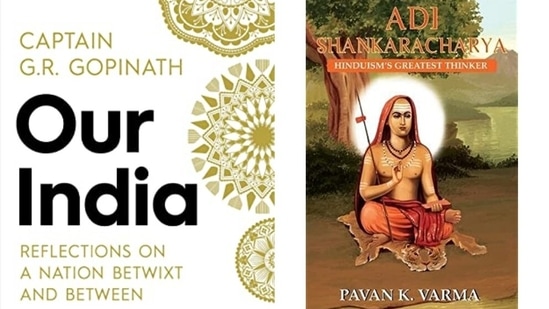Just Like That | Notes on jugaad, Cap Gopinath's story & an exciting Q&A at YPO
On examples of how Indians always find a way even in challenging situations; an anecdote on Captain Gopinath and Deccan Airways; and a recent, exciting Q&A on my book
Jugaad

Indians may love their spiritual halo, but in truth, they are also one of the world’s most resilient entrepreneurs, with their feet on the ground and their eyes on the balance sheet. That is why, even when arriving almost penniless in a foreign country, they are able, not only to survive, but to do well.
There is an Indian expression called “jugaad”. People are encouraged to use some jugaad when faced with a blank wall, or a difficult problem. Jugaad is creative improvisation, thinking out of the box — a tool to somehow find a solution, ingenuity, a refusal to accept defeat, initiative, quick thinking, cunning, resolve, and all of the above.
Some years ago, I was surprised to see on the highways of Punjab a strange contraption, which I learnt was called Maruta. It was assembled from assorted junk — tyres, pumps, wooden planks, and cannibalised parts. It had no registration, no insurance, a single gear, and a fixed speed, but it moved!
Examples of this kind of ingenuous improvisation are abound in India. For instance, in dhabas that line the highways — especially in north India — lassi (buttermilk) is churned up in vast quantities by using a modified washing machine!
Jugaad considers missing an opportunity an unforgiveable mistake, and this one tenet has taught many a successful businessman how to maximise profits. I was once in the central Indian town of Aurangabad, where I had dinner with a very successful bio-technology entrepreneur, Nand Kishore Kagliwal, who had prospered far beyond his father, a small shop owner. As we sat sipping a fine single malt on his manicured lawns, Kagliwal told me about his first lesson in entrepreneurship.
As a young man, he once drove down to Chowpatty in Mumbai for a stroll along the sea. Mumbai was less crowded then, and it was not difficult to find a parking spot on the beach. When he returned, he found that one wheel had sunk in the soft sand. In spite of his best efforts, he could not get the car moving. A small boy watching the proceedings agreed to help for a fee of ₹5. In desperation, Kagliwal agreed. In a jiffy, the boy produced a wooden board and wedged it under the wheel. Gripping the hard surface, the car easily pulled out. A very grateful Kagliwal happily paid him. “How did you have the wooden board so handy?”, he asked. Folding the ₹5 note in his pocket, the lad said matter-of-factly: “You are not the only one who makes this mistake.”
Today, we have Indians with the best training and education at commanding heights of leading business empires across the world. They have gone beyond jugaad, but their success is in no small measure due to their genes: The ability of thinking out of the box.
Captain Gopinath
Some weeks ago, I got an email out of the blue from Captain Gopinath, the former owner of Deccan Airways. Gopi — as I call him — wanted me to speak at the launch of his new book, Our India, in New Delhi, and I readily agreed.
Gopi has been many things in his life: An Army officer, a farmer, a politician, and a pioneering entrepreneur who, with a borrowed capital of ₹5 crore, started India’s first low-cost-no-frills airlines, Deccan Airways. The carrier, which specialised in providing connectivity to small towns, grew spectacularly, and at one time, had a bigger fleet than Indian Airlines. But the cost of running this venture went up steeply, and Gopi, dependent on his panicky investors, took the call to sell it to Kingfisher Airlines. Gopi gives a fascinating account of how the deal was finalised on the phone with Vijay Mallya, while the “King of good times” was hosting a glamorous dinner party on his yacht somewhere in the Mediterranean Sea.
At the book launch, the other speaker, apart from me and Gopi was Bharatiya Janata Party ideologue and leader, Swapan Dasgupta. Senior journalist, Jyoti Malhotra, moderated the discussion.
Young President's Organisation (YPO), Bengaluru
I was invited this week to address the Bengaluru chapter of the YPO on my book, Adi Shankaracharya: Hinduism’s Greatest Thinker. It was revealing to see the amount of interest these captains of business and industry had in spirituality and philosophy. Well-known journalist, Shoma Choudhary, was in conversation with me, and there was an animated Q&A at the end. Many in the audience were astounded at the sheer profundity of thought of our seers thousands of years ago. That leading scientists across the world are today endorsing Hinduism’s remarkable philosophical insights — there is a chapter in my book on this — was a special focus of discussion.
Pavan K Varma is author, diplomat, and former Member of Parliament (Rajya Sabha).
Just Like That is a weekly column where Varma shares nuggets from the world of history, culture, literature, and personal reminiscences with HT Premium readers
The views expressed are personal
Continue reading with HT Premium Subscription




